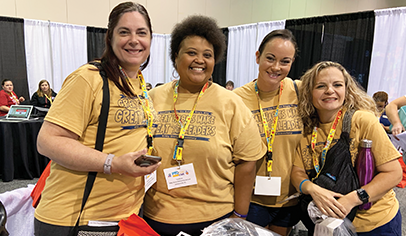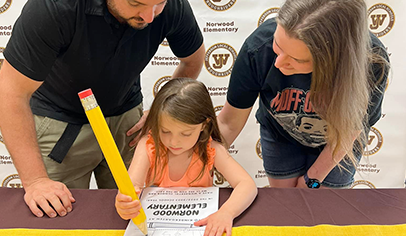There’s too much drama in PTO land.
Yeah, I know, there’s too much drama everywhere. You can barely read the paper without hearing about road rage or a parent behaving badly at a Little League game. But sometimes it seems like drama is the norm rather than the exception for many parent groups, and there’s almost no way for involvement to grow and community to flourish in that kind of atmosphere. As a leader, one of your most basic goals has to be reducing or avoiding drama.
There are many reasons why drama seems to find its way so easily into PTO life. It starts with the passion that many of us bring to any endeavor involving our kids. Add in the fact that most schools bring together a cross section of society, with many different viewpoints on the role of a PTO and how a volunteer group should operate.
I suggest that the final contributing factor is a lack of recognized authority and leadership. Yes, we have officers, but even the president of your group isn’t the boss of a prickly parent. The president can’t simply put an end to a problem with a stern word or a punishment. In most other areas of our lives—our families, our jobs, even our days as students—there are recognized authority figures who can step in and restore order or even remove the problem entirely.
I bet you’ve wished once or twice that you could ground or suspend or perhaps fire a volunteer. But you can’t, and thus drama tends to fester. The squeaky wheel not only gets grease, she may also chase away better volunteers in the process.
But drama isn’t just about the occasional unreasonable volunteer. More often, in fact, it pops up between well-minded people. Among even excellent volunteers, the unintended slight, the change in last year’s process, the misunderstood email—they’re the kindling of acrimony. It even happens with leaders. Do you love to associate with the PTO (“us”) during successes but privately complain about the PTO (“them”) during times of struggle? All of these things, if allowed to boil, can become fuel for drama. How you handle them will determine the atmosphere of your group.
So what’s the drama-avoiding PTO leader to do? Because we do lack that my-way-or-else authority, the only real alternative is to help your group mature. How can you make your group a place where adult manners and adult habits win?
It starts with open communication. When you sense hurt feelings or a murmur of discontent, address it openly right away—not in a gossipy way, but as the adult. “I’ve heard some questions about this issue, and I wanted to clarify my thoughts and get your feedback” is a disarming approach whether it’s used in a one-on-one email or in front of your whole group or committee.
We hear stories about perceived and real misdeeds all the time on our message boards at ptotoday.com. “What should we do?” is the plea. My first response is almost always the same: “Have you tried sitting down and having a calm, adult conversation about your concerns?” That simple first step, which is an excellent way to defuse drama, is often skipped.
I also find that self-deprecating humor can go a long way before, during, and after conflicts. You’re not in this to win arguments and you’re certainly not perfect; don’t be afraid to mention both of these early on. The latter will become clear eventually, so you might as well get ahead of it.
I also can’t emphasize enough the value of distributing credit and taking blame. If you’re the adult (and therefore don’t need every bit of glory for yourself) and you see the value of reducing drama, this is the magic formula. Thank and praise widely and publicly. When feelings are hurt, apologize rather than explain why feelings shouldn’t have been hurt. That keeps others from turning away. Defensiveness begets drama.
I hear all the time that being part of the PTO feels like being back in the high school cafeteria with its cliques and its social stress, but I find that to be a self-fulfilling prophecy. It doesn’t have to be that way. Your group can do better.
In high school, it was hard to be above the fray because we couldn’t see the fray; we weren’t adults. Now we are. Or at least you can be—and that can make all the difference.
























